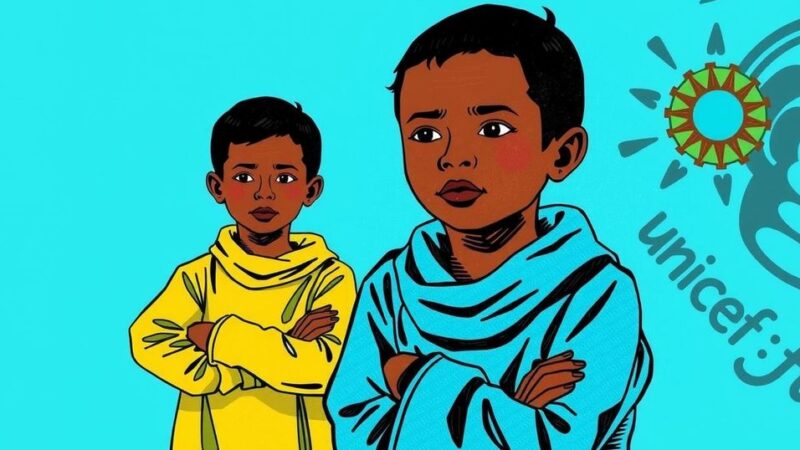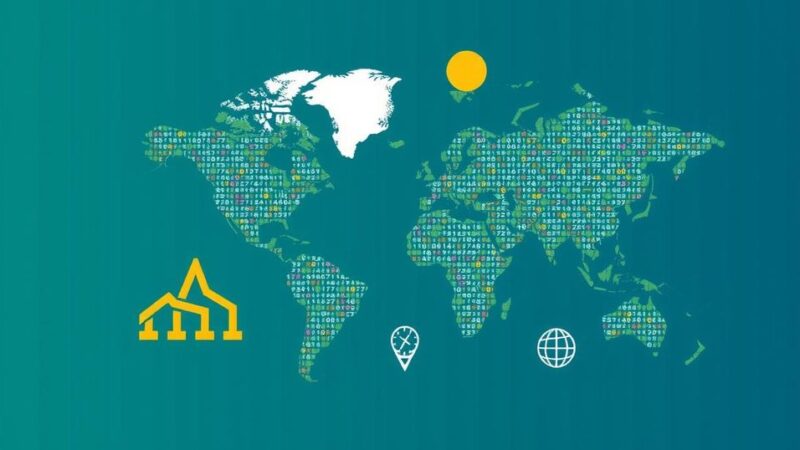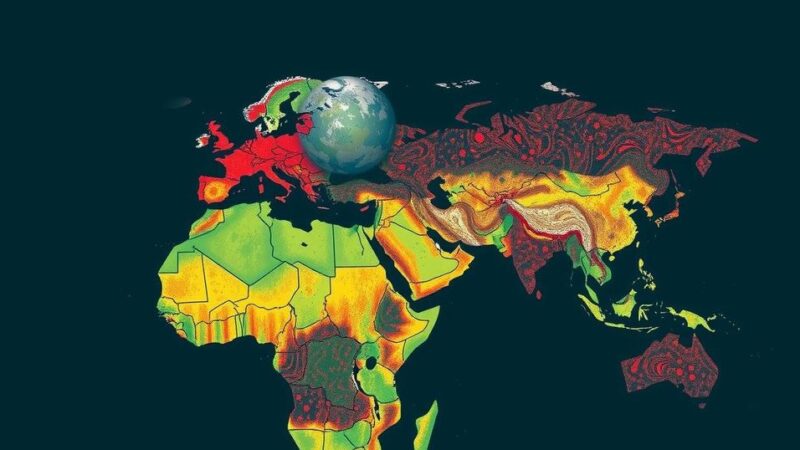Australia and Pacific island nations’ bid to host the 2026 UN climate talks is deferred until June 2024, risking diminished summit ambition. The competition from Turkey poses challenges amidst political timing before Australia’s federal elections. Australia’s climate minister, Chris Bowen, has taken a central role in negotiations, while partnerships with Pacific nations could enhance the bid’s credibility, amidst pressures for enhanced climate action and reforms.
The prospective bid by Australia and Pacific island nations to host the 2026 UN climate talks is currently uncertain, with the decision on the hosting rights postponed until June of the next year. Australia intended to secure the 31st Conference of the Parties (COP31) following this year’s climate negotiations in Azerbaijan, yet their bid now faces competition from Turkey, which remains adamant about hosting the event.
The seven-month deferral of this critical decision could potentially hinder the ambition of the summit in 2026, as the consensus for global initiatives requires considerable time to develop. Ambitious action agendas necessitate extensive cooperation and planning, and a lack of forward momentum may detract from the necessary global dialogue that COP31 aims to foster. Meanwhile, tens of thousands of participants are predicted to attend for two weeks of negotiations across various venues within Australia and the Pacific region.
With Australia’s climate minister, Chris Bowen, playing a significant role in this year’s negotiations, he effectively positioned himself for a possible presidential role at COP31, should Australia indeed host the event. His participation in finding a workable solution on climate finance was crucial, particularly given the emphasis on aiding developing nations in addressing climate challenges.
The hosting rights for the UN climate talks rotate among five UN country groupings, with the final consensus needed for the hosting decision. The support for Australia’s candidacy from several nations, including the United States, United Kingdom, and New Zealand, augurs well for their bid. However, President Erdoğan from Turkey actively sought support for his nation’s candidacy, emphasizing the competitive nature of the selection process.
The partnership with Pacific islands may yield additional credibility to Australia’s bid, as these countries are recognized leaders in the climate crisis response, and this moral authority is pivotal at the current juncture. Securing the COP31 hosting position could offer Australia an avenue for economic advancement in a global landscape transitioning from fossil fuels to renewable energy sources.
Furthermore, as Australia navigates its diplomatic relationships within the Pacific region amidst burgeoning strategic competition, hosting COP31 presents an opportunity to exhibit responsible climate action. In light of the anticipated U.S. withdrawal from the Paris Agreement under President-elect Trump, Australia’s role must encompass advocacy for a robust global commitment against climate change.
Several Australian cities have expressed interest in hosting COP31, notably including Brisbane, Sydney, and Perth, with Adelaide making a compelling case through its commitment to renewable energy. South Australia aims to attract investment for technologies such as green hydrogen production, a vital move towards diminishing reliance on polluting traditional steelmaking processes.
Recent criticism regarding the efficacy of climate talks, highlighted by climate activist Greta Thunberg, underlines the imperative for transformative action against fossil fuel dependence. Experts have called for reforms within the COP process, contending that only countries committed to phasing out fossil fuels should be allowed to host future talks.
With Australia being among the top fossil fuel exporters, the countdown to COP31 imposes upon the nation a responsibility to demonstrate a commitment to fossil fuel phase-out plans. Despite various pressures and expectations from countries such as Vanuatu, the current Australian leadership has indicated it may refrain from announcing new ambitious climate targets until after the federal elections.
The Australia-Pacific bid for the 2026 UN climate talks emerges from an ongoing global discourse surrounding climate change and its ramifications. The postponement of the decision not only reflects intra-national priorities, such as the impending federal election in Australia, but also highlights the complexities involved when multiple nations vie to host such high-stakes summits. The quest for international consensus on climate finance and sustainability catalyzes these discussions, with the Australasian delegation positioning itself as a crucial player in climate diplomacy.
In conclusion, the Australia-Pacific bid to host the COP31 climate talks remains a pivotal opportunity that requires urgent planning and decisive action. The potential for Australia and its Pacific partners to lead global climate negotiations is significant, particularly amid growing scrutiny of fossil fuel emissions and the need for ambitious climate targets. The upcoming months are critical for solidifying strategies that could not only reshape Australia’s energy landscape but also reaffirm its commitment to climate leadership on the global stage.
Original Source: theconversation.com





